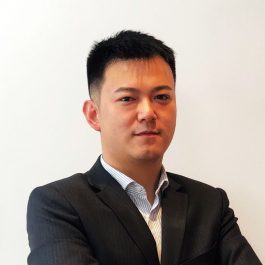
Junsi Yang
MSRED Candidate 2025
Contact Info
Chongqing/Guizhou, China
MBA – Peking University
With his passion to build a real estate career over the last decade, Junsi has worked for two major real estate developers in China and had one period of entrepreneurial experience. His work area covered different markets from first-tier cities to the poorest rural areas. He had led or participated in the construction of asset types including office buildings, shopping malls, residential buildings, and infrastructure, which brought him a lot of front-line practical experience in the industry.
After graduating with a Master’s degree in 2012, Junsi joined Shui On Land Real Estate, the developer of the famous Xintiandi in Shanghai, which is one of China’s first ULI-awarded projects. In 2015, as the person in charge, He independently managed a 180,000m2 residential project, covering all aspects such as the design, engineering, and sales. In 2019, He then joined the Country Garden Group and became a Chartered Builder and a Chartered Surveyor. In 2020, he served as the project general manager and led a team of nearly 100 people, responsible for four projects with an investment of about $348 million in Guizhou Province.
Junsi was passionate about the field of real estate, and hence he loved to use what he learned to help others in his own time. Many rural areas in China lack transportation facilities, whereby villagers must take hour-long detours by the river during flooding seasons. Sometimes, villagers choose to wade across the river to save time, leading to casualties. Since 2009, he has been working to help build bridges in rural areas. In 2015, during a bridge site inspection, he and his team found that in some parts of Yunnan, China, villagers used bamboo to build simple bridges. This interesting discovery deeply inspired him, and he thought that bamboo could potentially solve many construction difficulties in China due to its accessibility, low cost and environmental friendliness. Bamboo is not only cost-effective but also socially, economically, and environmentally sustainable. Therefore, his team and he went to Thailand and Indonesia to learn bamboo cutting, peeling, heat treatment, and other traditional methods, which were combined with modern architectural concepts in the laboratory of Tsinghua University. After rounds of trial and error, they finally built three demonstration bamboo bridges in Chongqing. In 2018, they completed the “One Heart Bridge” project, which had a span of 21 meters. The project was made entirely of bamboo, making it the longest bamboo bridge in China. Due to several breakthroughs in structure, materials, and sustainable construction, the “One Heart Bridge” has been recognized with the RICS Award China 2019 Achievement Award for Sustainable Construction and an Outstanding Contribution Award for Bamboo Structure at the World Bamboo and Rattan Organization.
